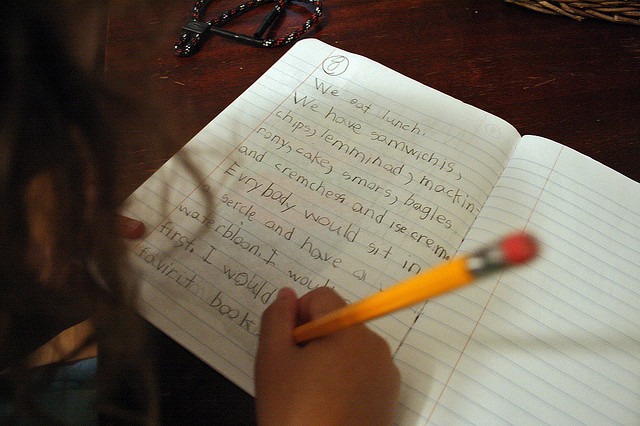Some kids simply hate to write. They become argumentative with their parents when doing written homework. At school they rush through writing assignments, doing as little as possible. For children who experience difficulties with slow processing, fine motor skills, or working memory limitations, writing can be an excruciating task. These kids may find that writing take “forever” or become incredibly frustrating when their thoughts don’t last long enough to be put down onto paper. How do you teach a kid who hates to write? I strongly recommend that we teach these children how to type at a very early age. While typing alone does not ensure that a student will become a proficient writer, it can overcome some of the angst that children with ADHD, dysgraphia, or executive functioning difficulties experience with writing tasks. It also lends itself directly to more effective editing, either by the student writer or a parent or mentor.
Typing is an important twenty-first century skill. Students of today will rarely use handwriting in their work as adults, so it is likely that excellent keyboarding skills will help them in any profession they choose. Keyboarding should be required learning for children who struggle with illegible handwriting, problems in organizing their thoughts, getting their ideas onto paper, or frustration due to the amount of time it takes them to write.
Even if children experience fine motor skill difficulties that interfere with their handwriting (which might also make typing tough), it is far more productive to spend time and energy improving their keyboarding skills. I suggest that teaching keyboarding skills starts as early as first grade, as soon as children can extend their fingers across a small keyboard. For many children, becoming proficient at keyboarding dramatically transforms their academic experience. A child’s work being neat and readable practically guarantees a modestly higher grade.
Cloud-based tools such as Google Drive allows the writer to share his written work with others, get their comments and encouragement, and make corrections from any location. “The Cloud” facilitates collaboration on the part of parents, peers, older siblings, and mentors who are able to assist in the writing process remotely by adding comments. This is particularly helpful if the written product is located in “the cloud” as opposed to an unshared device.
If your child does not love a traditional keyboard, there are many alternatives for typing in today’s world. For example, there are a variety of keyboard setups for tablets. Many of these are suitable to small hands and may in fact be more useful for children than adults. Many children are also growing up in using their thumbs on their cell phone keyboards. If this works for them and they are able to use a small keyboard effectively I suggest that you encourage them to become experts.In my estimation, it is far better for kids who struggle with getting their ideas onto paper to practice their typing skills on a cell phone rather than engaging in repetitive penmanship lessons on a piece of paper.
Whether you choose to use a traditional keyboard, a virtual keyboard on a tablet, or a mini keyboard on a cell phone, a number of strategies are likely to lead to your child becoming a competent or preferably an expert typist. These include:
- Prove to them that it works. First, choose the device that you are fastest at and then enter into a competition with them where you type a two paragraph essay and they handwrite it. Compare your times.
- Practice makes perfect. Your child does not need to become an expert typist in their first month of learning the skill. However, helping them to see the progress that they make will be very important in encouraging them to continuing to use this powerful tool for learning. Create a chart or use a program that keeps track of typing speed to give them feedback about improvements.
- Use the cloud. Typing skills will play only a small role in helping your child become a competent writer. However when parents, siblings and peers have an opportunity to provide feedback and help in editing your child’s work because it is cloud based, they will likely learn more about writing skills. In fact, if they also have access to their classmates work online, they will have additional models for them to use in developing their own writing skills.
Find ways to use typing skills outside of school. You might choose to encourage a child to become the publisher of a family blog, even if it is primarily visually based but does include some typing of text. Alternatively, you might find other strategies such as typing their comments on a book they read on Amazon.com, sending an e-mail to a relative, or generating a huge list of all the gifts they would love to receive for their birthday or Christmas.




